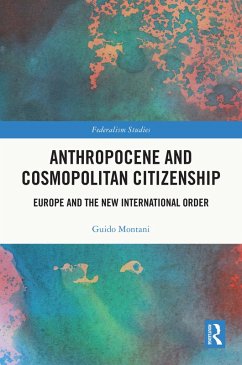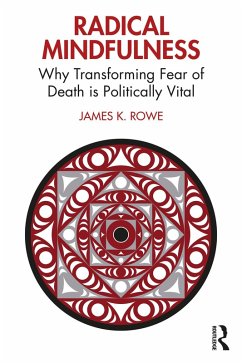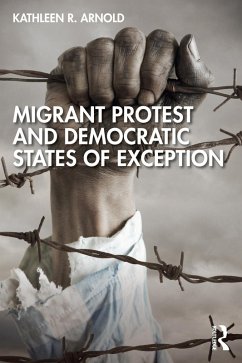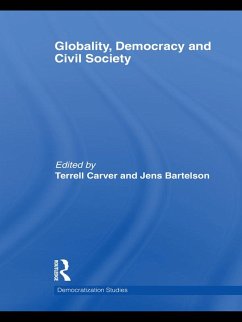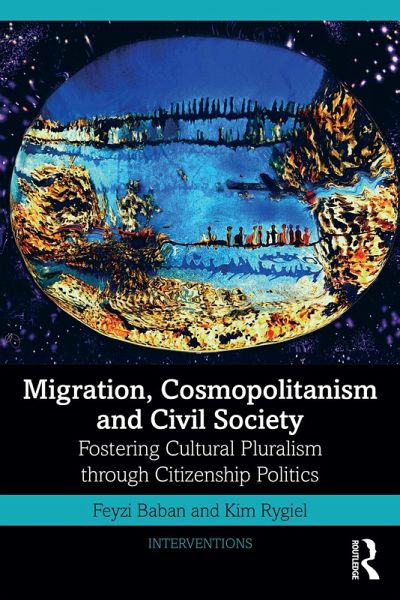
Migration, Cosmopolitanism and Civil Society (eBook, ePUB)
Fostering Cultural Pluralism through Citizenship Politics
Versandkostenfrei!
Sofort per Download lieferbar
39,95 €
inkl. MwSt.
Weitere Ausgaben:

PAYBACK Punkte
20 °P sammeln!
This book discusses the ways civil society initiatives open communities to newcomers and why, how, and under what circumstances some are more welcoming than others, exploring the importance of transgressive cosmopolitanism as a basis for creating more inclusive and pluralistic societies.The question of how to live together in increasingly multicultural, multi-ethnic, and multireligious societies is a pressing political and policy issue, particularly as we witness a rise in right-wing populism and anti-immigrant sentiments. This book addresses the limitations of approaches that seek to secure b...
This book discusses the ways civil society initiatives open communities to newcomers and why, how, and under what circumstances some are more welcoming than others, exploring the importance of transgressive cosmopolitanism as a basis for creating more inclusive and pluralistic societies.
The question of how to live together in increasingly multicultural, multi-ethnic, and multireligious societies is a pressing political and policy issue, particularly as we witness a rise in right-wing populism and anti-immigrant sentiments. This book addresses the limitations of approaches that seek to secure borders, preventing the arrival of newcomers altogether, or that vacillate between assimilation and multiculturalism. The authors explore the concept of cosmopolitanism and its utility, by theorizing from real-world examples, including Germany's Welcome Culture and Denmark's Kind Citizens movements and other smaller-scale initiatives, such as arts and museum projects, kitchen hubs, and shared living accommodation.
Interdisciplinary in nature and bringing conceptual discussions together with everyday examples, this book focuses on forms of activity generally left out of wider debates around protest and social movement literature. It emphasizes different types of activities undertaken by civil society groups, who do not necessarily self-identify as political, but whose activities can counter right-wing populism. This dialogue between concepts and everyday politics makes the volume a very useful companion to classroom discussion and will facilitate its own exchange between scholars, activists, and practitioners.
The question of how to live together in increasingly multicultural, multi-ethnic, and multireligious societies is a pressing political and policy issue, particularly as we witness a rise in right-wing populism and anti-immigrant sentiments. This book addresses the limitations of approaches that seek to secure borders, preventing the arrival of newcomers altogether, or that vacillate between assimilation and multiculturalism. The authors explore the concept of cosmopolitanism and its utility, by theorizing from real-world examples, including Germany's Welcome Culture and Denmark's Kind Citizens movements and other smaller-scale initiatives, such as arts and museum projects, kitchen hubs, and shared living accommodation.
Interdisciplinary in nature and bringing conceptual discussions together with everyday examples, this book focuses on forms of activity generally left out of wider debates around protest and social movement literature. It emphasizes different types of activities undertaken by civil society groups, who do not necessarily self-identify as political, but whose activities can counter right-wing populism. This dialogue between concepts and everyday politics makes the volume a very useful companion to classroom discussion and will facilitate its own exchange between scholars, activists, and practitioners.
Dieser Download kann aus rechtlichen Gründen nur mit Rechnungsadresse in A, B, BG, CY, CZ, D, DK, EW, E, FIN, F, GR, HR, H, IRL, I, LT, L, LR, M, NL, PL, P, R, S, SLO, SK ausgeliefert werden.







